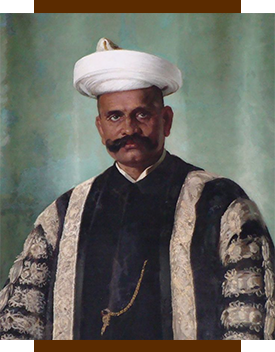Introduction
Introduction

The Bhandarkar Oriental Research Institute, Pune, was founded on July 6, 1917 to commemorate the name and the work of Ramkrishna Gopal Bhandarakar, the foremost pioneer of scientific Orientology in India. The Institute is a public organization registered under Act XXI 1860 (a Public Trust). It is partially supported by annual earmarked grants from the Maharashtra Government. The Institute has also received grants from the Government of India and the University Grants Commission for specific research projects.
Orientology is the study of the ancient indigenous lore and wisdom of the East or the ‘Orient’. The Institute concerns itself with research activity in the field of Orientology with a vision to enlighten the world about the all-comprehensive knowledge generated in the East, especially, in India.
The institute has one of the largest collections of rare books and manuscripts spanning over 1,25,000 books and over 28,000 manuscripts collected over a period of 90 years covering practically every aspect of Orientology. This collection covers several languages and scripts such as Sanskrit, Prakrit, Indian regional languages, Classical, Asean and European languages. In addition, through the pursuits of its research projects in the Mahabharata and Prakrit Languages it has created invaluable reference archives.
The Institute organizes learned Lectures by guest scholars under its various Memorial Lectureships. The All India Oriental Conference, various seminars and scholarly discussions are also organized by the Institute. The institute publishes its annual journal ‘Annals of the Bhandarkar Oriental Research Institute’. The most prominent publications of the Institute are: Critical Edition of the Mahabharata, Descriptive Catalogues of Manuscripts and The Prakrit Dictionary. The Institute also hosts a Manuscripts Resource and Conservation Centre under the auspices of the National Mission for Manuscripts, a project of the Cultural Ministry of India.
In short, the Institute has been effectively playing the role of a very significant centre of Indological Studies and Research over the last nine decades.
With the generous support of Shri. Dr. Anil Nene
© 2024 Bhandarkar Oriental Research Institute. All Rights Reserved.
Design & Developed by Pixel N Paper